
Palmer Lab Members
Principal Investigator
 |
Theo Palmer, PhD Associate Professor of Neurosurgery Vice Chair of Neurosurgical Research |
Lab manager
 Moises Rivera
Moises Rivera
Life Science Research Assistant
I joined the Palmer Lab in 2005 and since then I have been helping great people in the lab to get their projects done. Graduated from San Jose State University while working in the biotech/bioresearch since 1990. I spend my time helping lab members in anything they may need not only in the lab, but also outside the lab. In my spare time, I enjoy playing soccer and building and repairing anything around the house.
Research scientists
Jim Wiemann, Senior Research Scientist
My interests centers on the signaling pathways that regulate the development of the mammalian cerebral cortex. I have developed paradigms to transplant neural progenitors and neurons into the mammalian cortex to ascertain their differentiation potential after various manipulations. I have developed a protocol to generate cortical pyramidal neurons from ES and iPS cells that after transplantation can fully integrate into local neural networks. My background is in neural systems and the modulation of network activity by neuropeptides. Recently, we have been developing methods to generate several classes of neurons from human iPSC and ESC lines to be used after spinal cord injury and to study several neurological disease states.
Research associates
|
Carol received BS, MS, and PhD degrees from UC Berkeley with emphases in entomology, virology, and cell biology. She came to Stanford in 1994. She worked first with muscle stem cells, helping to develop regulatable systems for expressing possible therapeutic factors in muscle tissue. In the Palmer lab, Carol is working with human ES cells and IPS cells from people with different genetic forms of Parkinson’s Disease. She is differentiating stem cells into different types of neurons and using co-cultures of different neuronal types to develop assays of synapse formation and function. These assays will be used to help elucidate roles of immune factors in pathogenesis of Parkinson’s Disease. |
|
Alex’s research is focused on the intersection of neuroscience and stem cell science with emphasis on the development of model systems of neurodegenerative disease. Alex developed a differentiation paradigm to create human dopaminergic neurons from human induced pluripotent stem cells (iPSCs) to understand the mechanisms leading to the loss of these neurons in the progression of Parkinson’s disease. |
Postdoctoral fellows
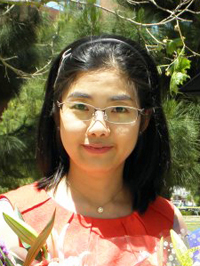 HyangMi Amy Moon, PhD
HyangMi Amy Moon, PhD
Amy received her BS and MS in Biological Sciences from Seoul National University in South Korea and in 2012 obtained her PhD in Biomedical Sciences at UCSF. Her doctoral thesis research focused on cellular functions of Lissencephaly-1 in mouse model of human neuronal migration disorder, smooth brain. Her current postdoctoral research in Theo Palmer lab aims to investigate molecular mechanisms of pathogenesis in maternal illness-induced immune activation mouse and GABA receptor mutants as animal models of autism spectrum disorder (ASD). In particular, she is interested in maternal-fetal interaction in the placenta and neural stem cell division/cerebral cortex neurogenesis during early brain development.
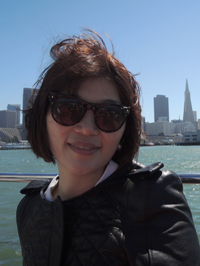 Hye-Ryeon Lee, PhD
Hye-Ryeon Lee, PhD
I received my Ph.D. in neuroscience in 2012 at Seoul National University. During my PhD course, I studied the novel molecular and cellular mechanisms of synaptic plasticity, learning and memory in prefrontal cortex and hippocampus. I joined the Palmer lab as a postdoctoral fellow in the spring of 2013 and I am interested in the pathophysiological mechanisms of neurodevelopmental disorders such as autism spectrum disorder.
Marc Carmichael, PhD
Marc received a B.S. in Chemical Engineering and a Ph.D. in Biomedical Engineering from Rutgers University. His overarching interest is in regenerative medicine, particularly in developing the tools to exploit the therapeutic potential of iPSC-derived cells to replace neurons lost following a traumatic CNS injury or neurodegenerative disease. Currently, Marc is on leave from the Stanford M.D. program to pursue postdoctoral research in the Palmer lab. His postdoctoral research is focused on investigating how the interaction of genes of interest and inflammation affects synaptic connectivity, and ultimately the integration of endogenous and transplanted neurons into functional networks within the CNS. Before coming to Stanford, Marc worked as both a Chemical and Process Engineer in the R&D divisions at Centocor and Merck & Co. with a focus on process development, tech transfer, and new technology development in the production of biopharmaceuticals from mammalian cells and fermentation processes. In addition to his academic and industry pursuits, Marc remains involved in various teaching, mentoring, and service activities within the Stanford and local communities.
Aditya received his PhD at the University of Florida in December 2013 where his doctoral work focused on how neurogenesis in the adult hippocampus was affected by peripheral and CNS inflammation. After joining the Palmer lab in the fall of 2014 his research is focused on understanding the importance of MHC 1 and other immune receptors in neuron intrinsic roles such as connectivity and differentiation in the context of stem cell-derived neural transplantation for the treatment of Parkinson's Disease. When he's not in the lab, Aditya enjoys being an amateur musician, exploring the outdoors and playing soccer and tennis.
Residents
Terry is a native of Australia, whose French horn led him around the world and to college in the United States. After completing undergraduate studies in biology and biochemistry at Columbia Union College in Maryland, he completed his MD and PhD at the University of Minnesota where his research focused on stem cells and their behavior in the ischemic brain. Terry is now a Stanford Neurosurgery resident performing postdoctoral research in the Palmer lab, with plans to build a career translating neuroregenerative strategies from the lab to the operating room. Terry's non-academic pursuits include music, photography and exploring the great outdoors.
My research interests include understanding the behavior of endogenous and transplanted stem cells in the healthy and diseased brain for the development of neuroregenerative therapies. My current work in the lab of Theo Palmer includes efforts to reactivate neurogenesis after brain irradiation for treatment of brain tumors. Specifically, our current projects include profiling the cellular and transcriptional changes occurring after brain irradiation, testing candidate strategies to overcome these changes, and developing strategies to reactivate or replace dysfunctional neural stem cells in the irradiated neurogenic niche. In the process of this work, we also intend to answer the fundamental unanswered question of whether or not neural stem cells can repopulate the quiescent stem cell pool in a depleted neurogenic niche. If so, development of neural stem cell replacement strategies could ultimately yield neural stem cell-based therapies for the brain that are analogous to those bone marrow transplantation have provided for diseases of the hematopoietic system.
Graduate Students
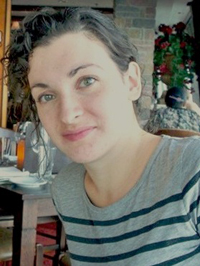 Amy Braun (Neuroscience) |
Amy received her B.A. in Neuroscience from the College of Wooster. She currently studies the impact of maternal immune activation on placental vasculature and fetal brain development. She is particularly interested in understanding how the timing of the immune insult affects specific precursor cell populations and leads to stereotyped cytoarchitectural and behavioral alterations in the adult offspring. She is also a certified yoga instructor and a vocalist and songwriter for two bay area bands. |
|
As an E.M.T., Kristin was moved by the frustration of patients whose neurological disorders lacked definitive treatments or biological explanations. She devoted her undergraduate at University of California - San Diego to pursuing a B.S. in Cognitive Science - Neuroscience and a minor in Biology. During that time, she explored both molecular and behavioral approaches to studying brain function through an honors thesis in language perception and lab work on amyloid beta toxicity in the hippocampus. Propelled by her interest in neurodevelopmental disorders, she spent two years at the Marcus Autism Center in Atlanta investigating the prenatal origin of Autism Spectrum Disorders in human infants. As a graduate student in the Palmer lab, she unites bioinformatic and molecular techniques to explore the mechanisms by which the maternal immune system impacts fetal brain development. She works passionately to be a science ambassador for non-academic communities. |
LSRAs
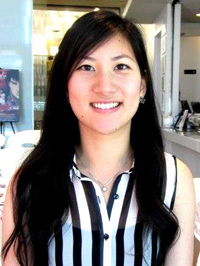 Jennifer Su, LSRA |
Jennifer graduated from UC Berkeley in 2014 with a B.A. in Molecular and Cellular Biology with an emphasis in Neurobiology. She joined the Palmer Lab in September 2014 and works closely with Dr. Amy Moon and Vidya investigating the effects of GABA receptor deficiency and maternal immune activation on placental vulnerability and fetal brain development using mouse models. She is interested in the gene-environment interaction between partial loss of GABA receptors and maternal immune events in increasing the risk of neurodevelopmental disorders such as autism spectrum disorders (ASD). In her spare time, Jennifer enjoys going on road trips and long distance running, and admits that she has a separate stomach just for desserts. |

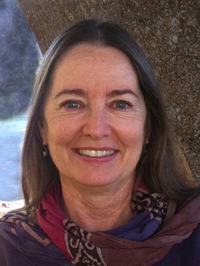
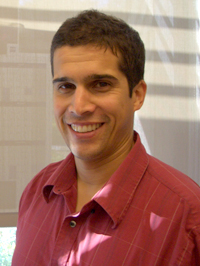
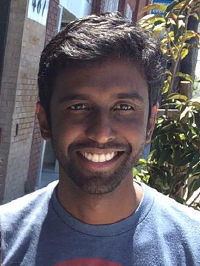 Aditya Asokan, PhD
Aditya Asokan, PhD Terry Burns, MD, PhD
Terry Burns, MD, PhD 